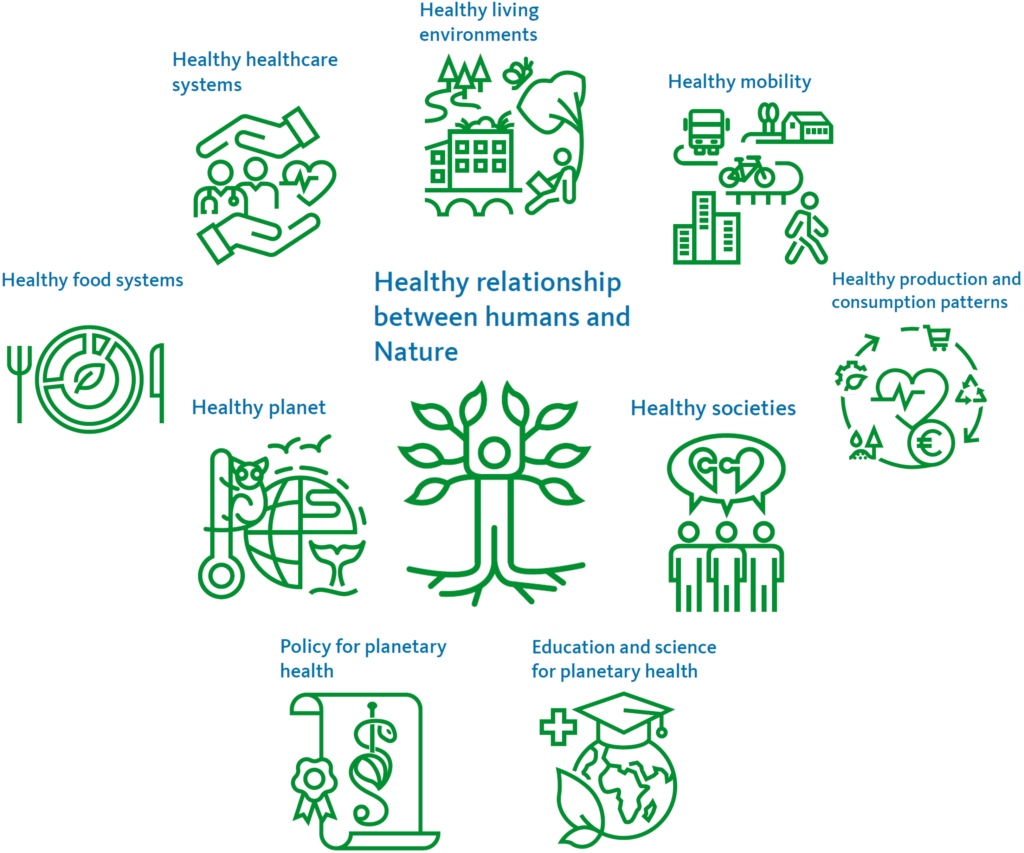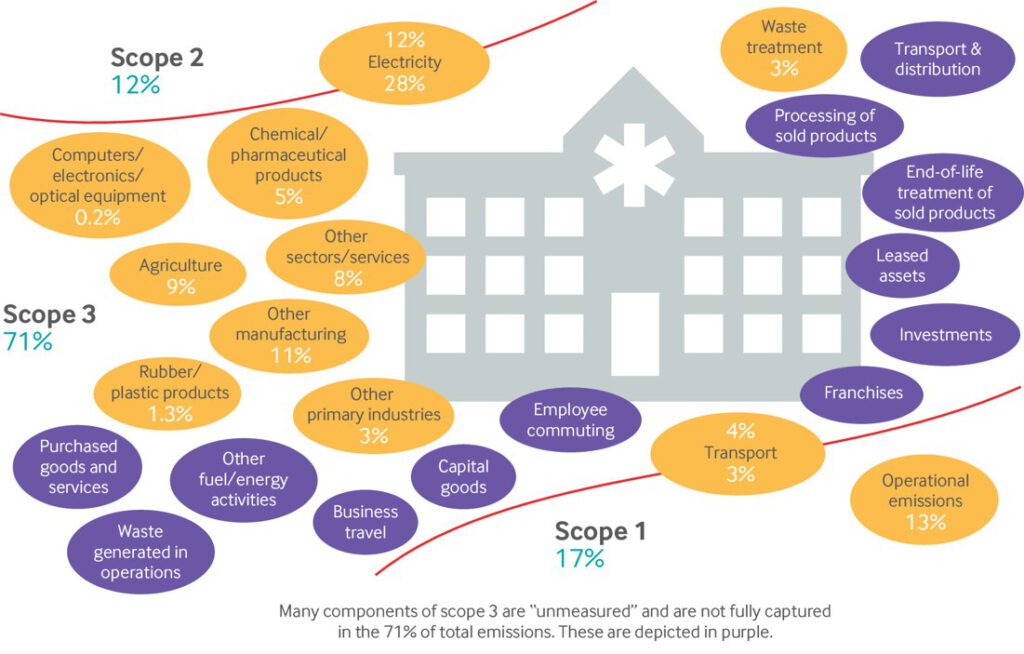Preface
Planetary Health is a solutions-oriented field which tries to understand the interlinkages between human health and the Earth’s natural systems. It helps to better understand how health, political, economic, social and environmental issues are interlinked.
In this game you will be presented with puzzles you have to solve in a manner that maintains the best possible balance between the interconnected parts of the planetary health system.

Source: WBGU_Planetary__health.pdf
GHG Emissions of the Health Sector
The health sector is a critical player in advancing good health and well-being in the sense of sustainable health care. On the one hand, the health care sector is confronted with handling the direct health impacts of climate and environmental change. On the other hand, the health sector itself has a massive ecological footprint, as it is responsible for 4.4% of the total greenhouse gas emissions world-wide. Emissions arise directly from the operation of health care facilities (Scope 1), their energy supply (Scope 2) or and indirectly from the supply chain of the production of health care goods (Scope 3). The components of Scope 3 depicted in purple are unmeasured. Many health systems do not calculate or report the factors of Scope 3.

Permission to reproduce from Salas R N, Maibach E, Pencheon D, Watts N, Frumkin H. A pathway to net zero emissions for healthcare BMJ 2020; 371 :m3785 doi:10.1136/bmj.m3785
Urban Design and NCDs
Over 50% of the world‘s population lives in urban areas. By 2050, with the projected sociodemographic change, this percentage will increase to 65%. How cities are designed has an impact on health.
Urban design influences peoples‘ behavior and the exposure to risk factors. In combination with social and biological context factors, urban design has an effect on morbidity and subsequent mortality. Policiy makers, local communities and the private sector should work together to make cities safe, accessible, equitable places that promote healthy behaviors.

Nieuwenhuijs, 2018 reproduced with permission
